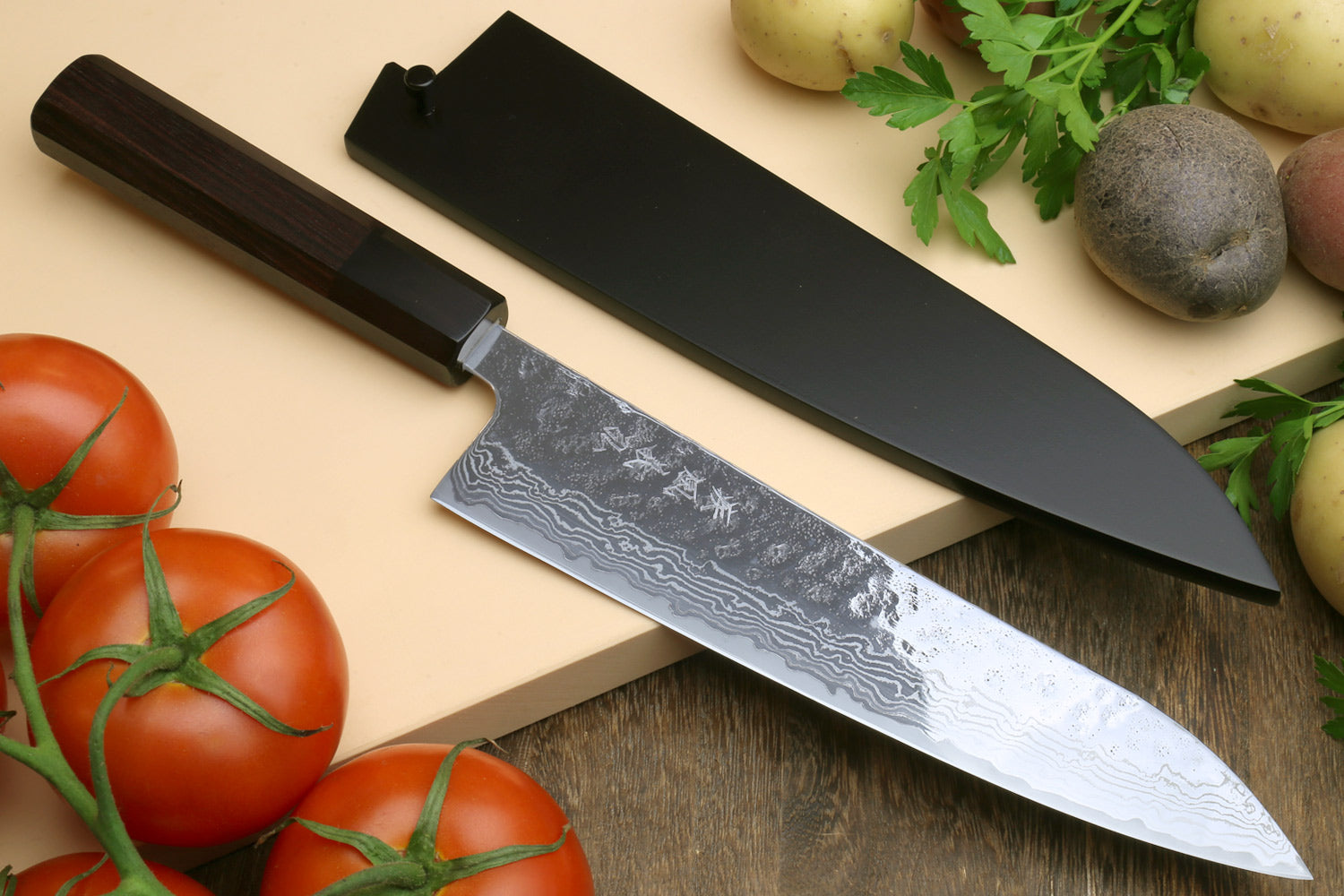In the world of culinary arts, having the right tools is paramount. A knife is not merely an accessory but an extension of a chef's hand. This is where the Chef Approved Damascus Kitchen Knife claims its rightful spotlight. Unique, resilient, and artistically crafted, this knife is a treasured possession of culinary professionals around the globe.
Why does this particular knife garner so much admiration? Besides its stunning aesthetic appeal characterized by flowing water-like patterns, the Damascus Kitchen Knife is lauded for its enhanced durability and superior cutting precision. Its presence in the kitchen signifies a blend of tradition and modern innovation, making it a favored choice amongst professional chefs.

The Historical Heritage of Damascus Steel
The craft of Damascus steel is steeped in rich history. Originating from ancient civilizations, the technique of pattern welding was honed to perfection by artisans who sought to enhance both beauty and performance. These knives were revered for their strength and edge retention.
For those interested in the fascinating journey of this material, delve into the history of Damascus steel, and uncover the secrets of its creation and evolution.
Craftsmanship that Stands the Test of Time
A Chef Approved Damascus Kitchen Knife is more than just a tool; it represents the pinnacle of knife-making craftsmanship. Forged meticulously, layer upon layer, the steel exhibits intricate patterns that captivate not only the eye but also the heart.
These knives are a testament to impeccable design and functionality, offering exceptional balance and grip, which allows chefs to perform even the most intricate cuts with confidence. For a hands-on experience with resin handle Damascus knives, read more about their crafting here.
Why Professional Chefs Recommend Damascus Knives
Endorsed by master chefs, the Damascus Kitchen Knife is often described as the workhorse of the kitchen. What truly sets it apart is its ability to maintain a sharp edge for extended periods, reducing the frequency of sharpening. Coupled with its beautiful patterning, it brings both performance and aesthetics to every culinary creation.
The knife's versatility makes it ideal for a variety of kitchen tasks, from slicing delicate herbs to chopping robust root vegetables. Moreover, its ergonomic handle provides superior control and comfort, minimizing fatigue during extended cooking sessions.
Mastering the Art of Knife Maintenance
Maintaining the sharpness and allure of your Chef Approved Damascus Kitchen Knife requires practice and patience. Regular sharpening using appropriate techniques preserves its edge and functionality. Explore our detailed guide on maintaining sharpness with the right methods.
Moreover, investing in care and attention ensures that your knife not only lasts a lifetime but also continues to embody its heritage and craftsmanship. For an in-depth understanding of its history and care, check out this comprehensive guide.
Conclusion: The Fusion of Tradition and Innovation
The enduring appeal of the Chef Approved Damascus Kitchen Knife lies in its ability to combine historical artistry with modern practicality. As a culinary professional, choosing a Damascus knife is an investment in quality, longevity, and style. It empowers chefs to execute dishes with finesse, precision, and elegance.
For those ready to enhance their culinary toolkit with a blend of legacy and leading-edge performance, the Damascus knife offers the perfect solutionan invitation to excel in the kitchen and own a piece of timeless art.

FAQs
What makes a Damascus knife unique?
Damascus knives are renowned for their striking patterned surfaces, achieved through a skilled welding technique of different steel types. This method enhances both the knifes durability and sharpness.
Can a Damascus kitchen knife be used for daily cooking?
Yes, a Damascus Kitchen Knife is ideal for daily use, offering superior performance and versatility for a wide range of culinary tasks, from slicing to chopping.
How do I maintain the sharpness of a Damascus knife?
Regular honing and proper storage are key to maintaining a knife's sharpness. For detailed tips on honing techniques, you might find our guide here particularly useful.
This article contains affiliate links. We may earn a commission at no extra cost to you.


























